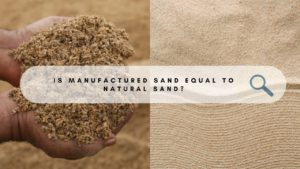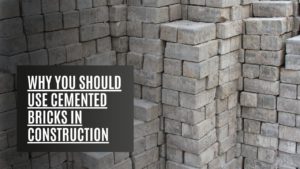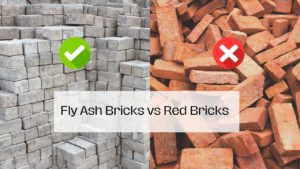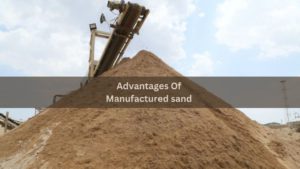Landscaping plays a significant role in enhancing the beauty and functionality of outdoor spaces, whether it’s a cozy patio, an elegant driveway, or a garden pathway. Choosing the right materials for your landscaping project is essential to ensure durability, aesthetics, and cost-effectiveness. Two popular options for paving are paver blocks and concrete.
In this blog, we’ll dive into the characteristics of both materials and compare them to help you decide which one is the best for your project.
What Are Paver Blocks?

Paver blocks are individual units made from materials like concrete, clay, or stone, designed to interlock and form a solid, even surface. They come in a variety of shapes, sizes, and colors, offering endless possibilities for creative designs.
One of the most common types is interlocking blocks, which fit together like puzzle pieces, ensuring stability without the need for mortar. This makes them an ideal choice for driveways, patios, walkways, and garden paths. The ability to choose from different colors and patterns adds to the versatility of paver blocks, making them a popular choice for creating decorative and functional outdoor spaces.
Some key benefits of paver blocks include:
- Aesthetic Appeal: The wide range of colors, shapes, and patterns makes them suitable for personalized designs.
- Durability: Paver blocks can withstand heavy traffic and resist cracking, especially in areas where the ground may shift or settle.
- Easy Replacement: If a paver block becomes damaged, it’s easy to replace individual blocks without disturbing the entire surface.
Paver blocks are often preferred for interlocking pavers driveways, decorative garden paths, and outdoor patios due to their strong visual appeal and flexibility in design.
What is Concrete?

Concrete is a composite material made from cement, sand, gravel, and water. It’s one of the most commonly used construction materials due to its strength and versatility. In landscaping, concrete is primarily used for slabs, sidewalks, and even some decorative outdoor features like stamped concrete patios.
Concrete has several advantages, such as:
- Durability: Concrete is highly durable and can withstand heavy loads and harsh weather conditions.
- Low Maintenance: Once installed, concrete requires very little maintenance. It doesn’t require frequent cleaning or repairs.
- Customizable Finishes: While concrete slabs are often thought of as plain, they can be customized using stains, stamps, and finishes to create visually appealing designs.
In landscaping, concrete is a popular choice for large areas, like foundations, pathways, and driveways, where strength and longevity are priorities.
Comparison of Paver Blocks and Concrete
When deciding between paver blocks and concrete for your landscaping project, it’s essential to compare them across several factors:
Durability
Both materials are highly durable, but they perform differently under specific conditions. Paver blocks are better suited to handle ground shifts and movement because of their interlocking design, which prevents cracking. Concrete, while strong, can be prone to cracking in areas with frequent freeze-thaw cycles or shifting soil. However, concrete can last for decades with minimal maintenance, making it a long-term option.
Aesthetics
In terms of aesthetics, paver blocks offer a significant advantage. They come in various shapes, sizes, colors, and patterns, allowing for creative freedom in landscape design. Whether you want a rustic look or a modern, sleek design, paver blocks can cater to your needs. On the other hand, while concrete can be stained or stamped to mimic different textures and colors, its options are still more limited compared to paver blocks.
Installation Process
The installation of paver blocks typically requires more time and effort than pouring concrete. Paver blocks need to be individually placed and interlocked, which can be labor-intensive. However, this also makes paver block installation a feasible DIY project for those with experience in landscaping. Concrete, in contrast, is poured in one go, making the process faster, especially for large areas. However, it’s generally not considered a DIY-friendly option due to the need for precise leveling and finishing.
Cost Analysis
In terms of initial costs, paver blocks tend to be more expensive than concrete due to the labor-intensive installation process. However, paver blocks often pay off in the long run as they require less maintenance and can be repaired by replacing individual units rather than the entire surface. Concrete, while cheaper upfront, may incur higher costs over time if cracks or damage occur and need to be fixed. Therefore, while concrete offers a lower initial cost, paver blocks provide greater long-term value due to ease of maintenance and replacement.
Best Use Cases for Paver Blocks and Concrete
When to Choose Paver Blocks Paver blocks are an excellent choice for projects that require customizable designs and flexibility. They are ideal for smaller areas like patios, walkways, and driveways, where aesthetics and durability are equally important. Their ability to handle ground shifts without cracking makes them perfect for areas with frequent freeze-thaw cycles or unstable soil. Interlocking pavers driveways are particularly popular because of their strength and aesthetic appeal.
When to Choose Concrete Concrete is best suited for large areas where quick installation is a priority. If you need a durable and low-maintenance solution for a foundation, large patio, or driveway, concrete is a great option. Its ability to withstand heavy loads makes it a practical choice for commercial spaces or areas with significant foot traffic.
Choosing the Right Pavers for Your Outdoor Space
Selecting the right pavers for your outdoor area is crucial for enhancing durability, aesthetics, and functionality. The ideal paver depends on factors such as climate, load-bearing capacity, maintenance, and design preferences. Here’s a breakdown of the types of pavers and their best use for houses:
1. Types of Pavers for Outdoor Spaces
-
Concrete Pavers: Affordable, durable, and available in multiple colors and patterns. Ideal for driveways, patios, and pathways.
-
Brick Pavers: Made from clay, these offer a classic and timeless appeal. Best for garden walkways and rustic-themed patios.
-
Stone Pavers: Natural stones like granite, limestone, and sandstone provide an elegant and high-end look. Perfect for luxury patios, pool decks, and courtyards.
-
Interlocking Pavers: Designed to fit together like a puzzle, making them durable and resistant to shifting. Suitable for driveways, walkways, and high-traffic areas.
-
Permeable Pavers: Eco-friendly options that allow water to pass through, reducing runoff. Ideal for sustainable landscaping and garden pathways.
2. Best Paver Choices for Houses
-
For Driveways: Interlocking pavers are the best choice for durability, crack resistance, and easy repairs.
-
For Patios: Brick or stone pavers add charm, but interlocking pavers offer more strength and design flexibility.
-
For Garden Pathways: Flagstone looks natural, but interlocking pavers provide better stability and longevity.
-
For Pool Decks: Slip-resistant stone is great, but interlocking pavers improve drainage and safety.
Why Choose Interlocking Pavers?
They resist cracks, last longer, and offer endless design options, making them the smartest choice for any outdoor space.
Conclusion
Choosing between paver blocks and concrete depends on the specific needs of your landscaping project. Paver blocks offer superior aesthetics, design flexibility, and easier maintenance, making them ideal for smaller, decorative spaces like patios and pathways. Concrete, with its durability and lower initial cost, is better suited for larger, high-traffic areas like driveways and foundations.
Both materials have their strengths, and the best option for your project will depend on factors such as budget, desired aesthetic, and the specific application. Before making a final decision, consider the long-term costs and benefits of each option.
If you’re ready to enhance your outdoor space, contact Raj Mineral to explore a range of durable paving solutions like paver blocks and concrete, tailored to your landscaping needs.
ALSO READ: Paver Block Flooring for Stunning Home Exteriors
Follow us on @rajmineral











